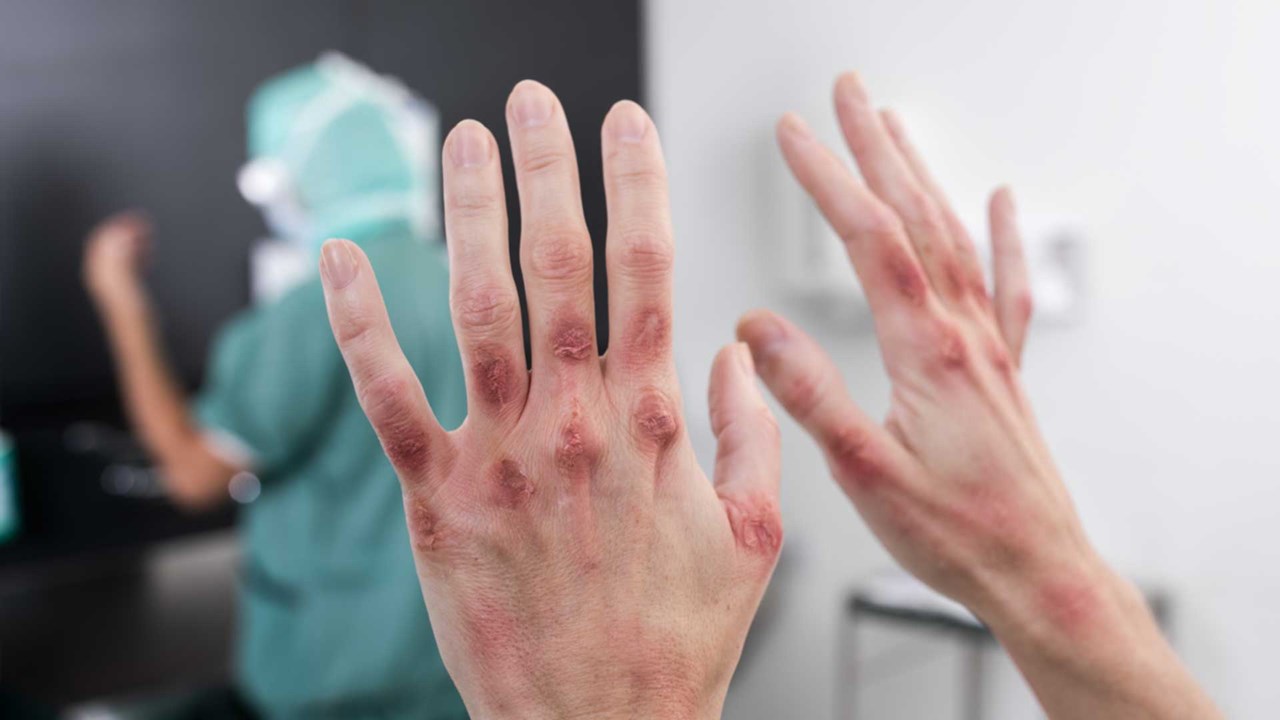Allergic contact dermatitis (ACD), also known as Type IV hypersensitivity, is an allergic response and is caused by skin absorption of chemicals in the product.

Why is contact dermatitis a problem?
Surgical teams perform one of the most important jobs in the world. For clinicians experiencing irritant and allergic contact dermatitis, the symptoms are not only irritating, they can become a distraction from focusing on the task at hand. Many clinicians do not seek occupational help and just live with the discomfort as a part of the job:
Clinician Survey finds allergic reactions are widespread
A recent survey conducted amongst 555 practicing operating room surgeons and nurses revealed that one third of surgeons and nurses are suffering from harmful allergic reaction in the operating room. The survey conducted by SERMO for Mölnlycke found.
of surgeons and nurses have personally experienced a skin reaction on their hands in the O.R.
34% of those who experienced a reaction, said the skin reaction had a negative impact on their quality of life.
of those who experienced a reaction, reported they had been distracted from their work due to a skin reaction to surgical gloves
Nearly 20% of those who had experienced a reaction had to change gloves during an operation (due to a reaction)
What can be done to help avoid contact dermatitis?

Do not don gloves with wet hands. Water is a potential irritant. Frequent exposure causes swelling and shrinking of skin and can lead to dermatitis

Avoid detergents and opt for alcohol based hand rubs to reduce skin irritation

Use moisturising skincare products
Wear gloves that do not contain chemical accelerators that are known to cause contact dermatitis. Biogel PI UltraTouch S is designed to reduce the risk of allergic contact dermatitis, and made using a skin friendly formula.
Note: The above instructions are not substitution for medical advice.
Submit your contact information to receive samples of our new skin-friendly glove
'References'




